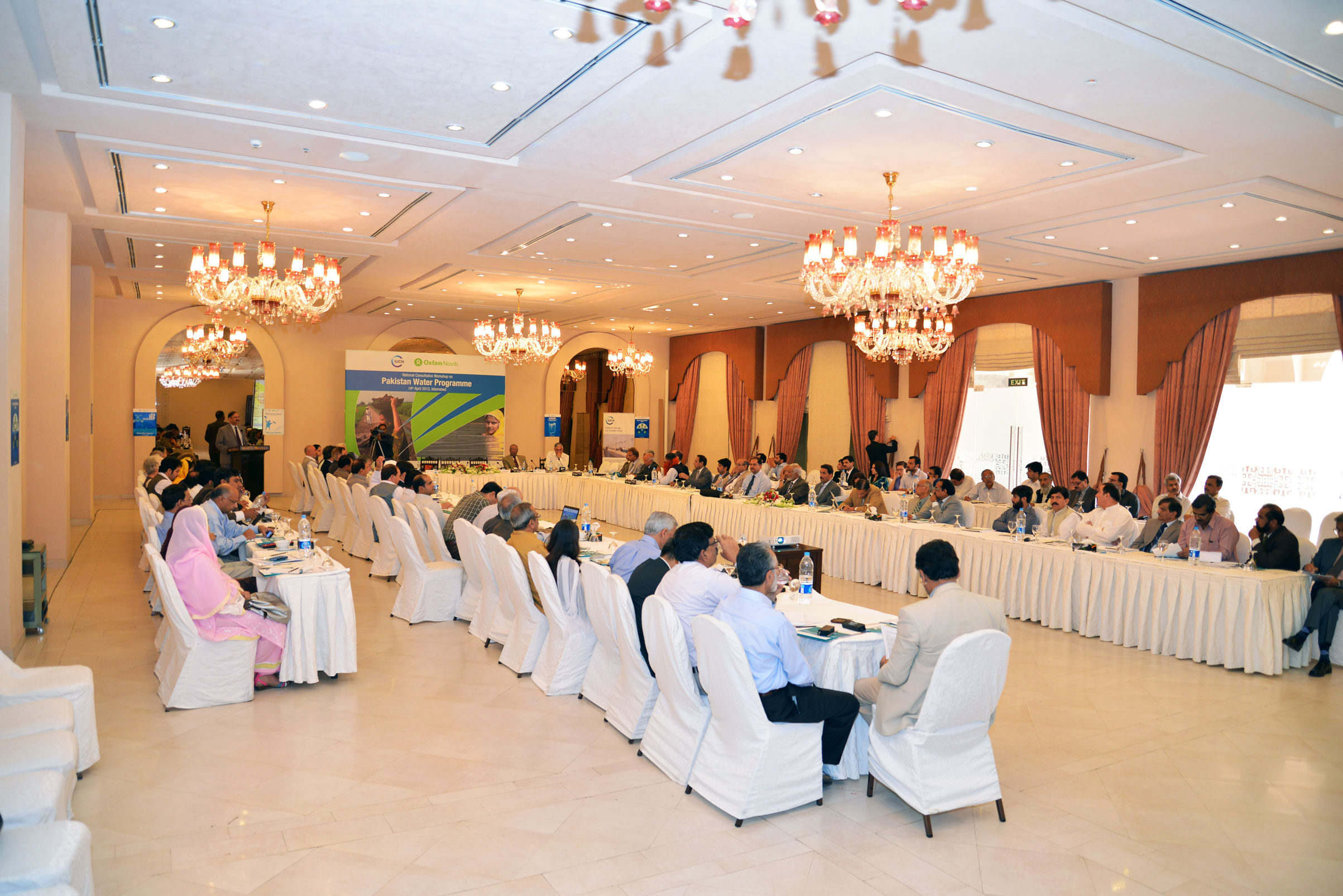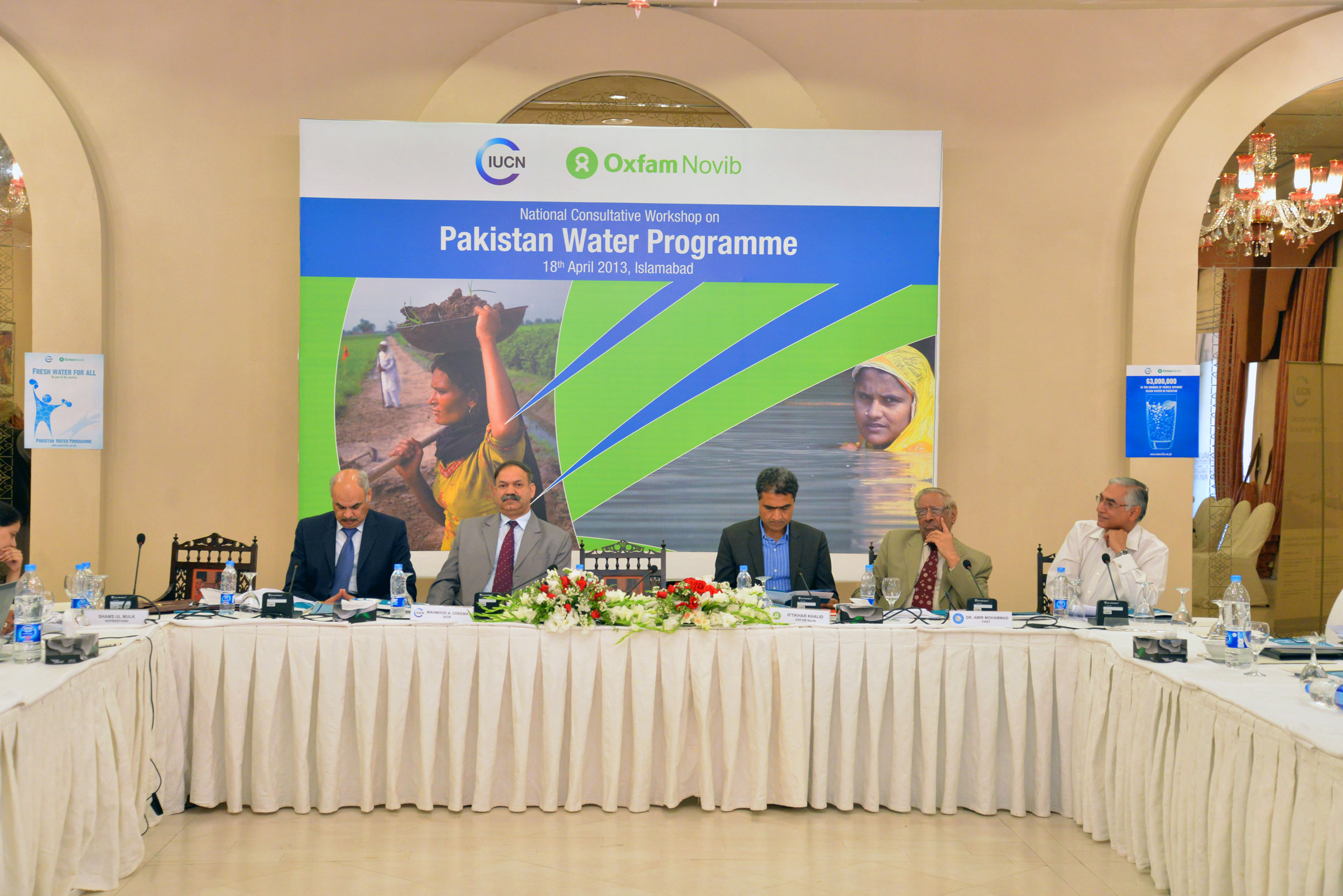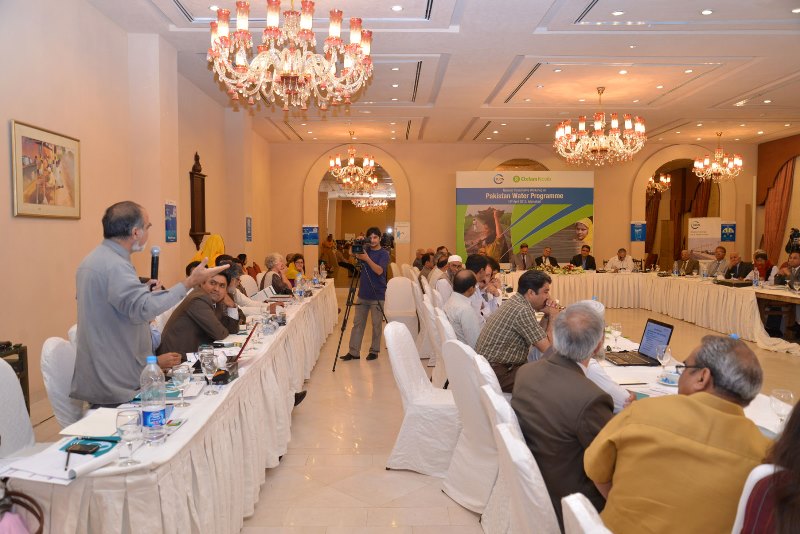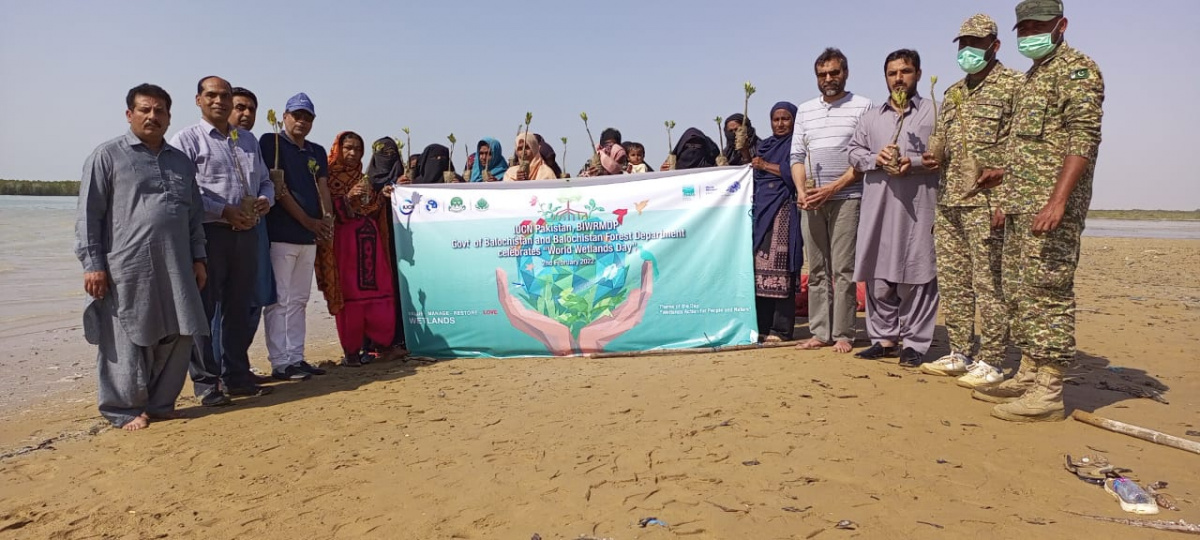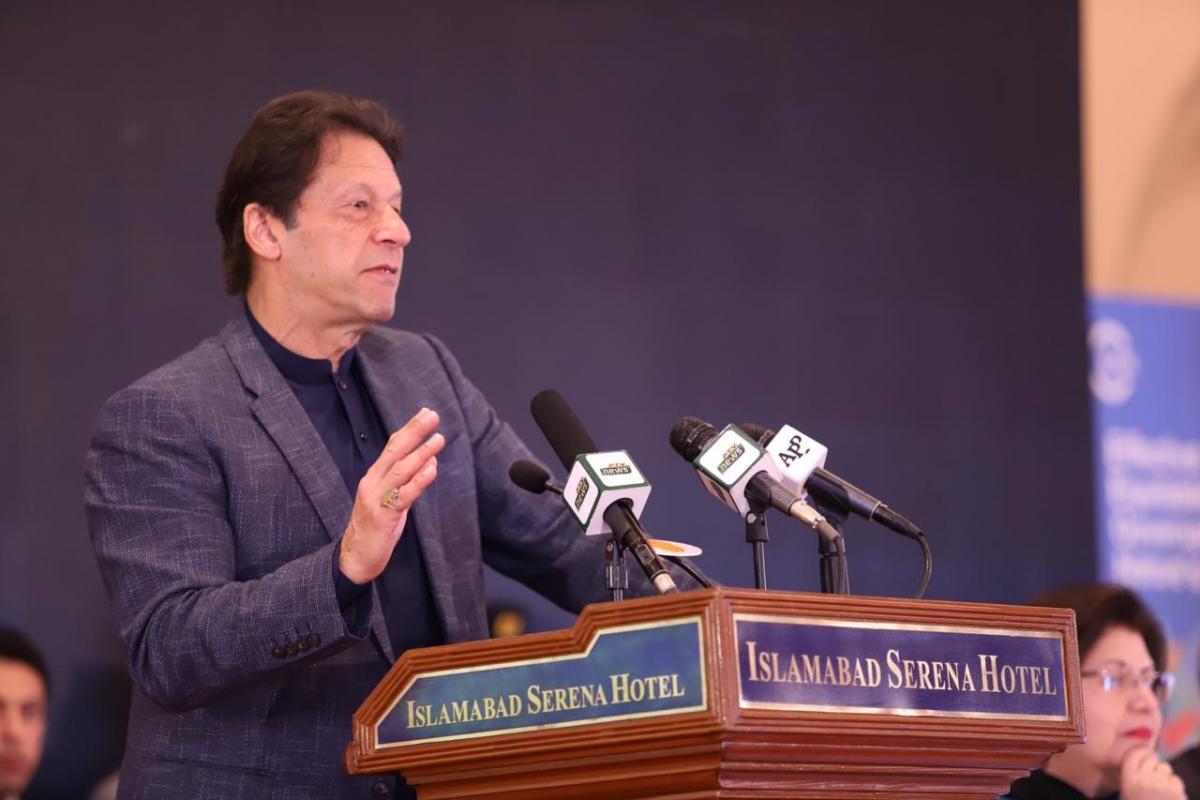A Step towards easing Pakistan’s water woes – National Consultative Workshop on Water
IUCN Pakistan organized a National consultative workshop on ‘Pakistan Water Programme’ in collaboration with Oxfam-Novib at a local hotel in Islamabad. The objective of the consultative workshop was to discuss the key issues Pakistan is facing in terms of depleting water resources.
Dr. Shahid Ahmad facilitated the workshop - a Senior Water Expert on water at IUCN Pakistan, Mr. Javed Jabbar, President, Baanhn Beli, was the Chief Guest at the occasion.
Mr. Mahmood Akhtar Cheema, Country Representative IUCN Pakistan, commenced the event with his welcome remarks and stressed on the importance of water in daily life and cooperation with neighboring countries on the matter.
Mr. Iftikhar Khalid, Associate Country Director Oxfam Novib, shared his concerns regarding water scarcity in the country and that the availability of clean water should be of highest priority.
Mr. Shams-ul-Mulk, President SOPREST, talked about the Indus Water Treaty and its significance in the present times. He also stressed on how institutional architecture of the water sector needs to be revised and that the shortage of water is fast becoming a source of worry not just for Pakistan, but also for the world. He warned that 20 years from now, Pakistan would be in far tougher circumstances if solid steps were not taken to secure its water sources. He said that institutions must have the capacity, procured with proper legal cover to produce positive results. “Water is not oil, it is not gas, it has no substitutes, it cannot be imported, therefore, it is needed to sustain life”, he added. Mr. Shams-ul-Mulk also talked about inter-provincial water issues. He shared that 70% of water is allocated to Sindh, 20% to Punjab 6% Balochistan and 4% to Khyber Pakhtunkhwa. However, Pakistan’s water discords are not only provincial but also regional.
Dr. Amir Mohammad Rector, National University of Computer and Emerging Sciences, Islamabad (FAST-NU) talked about how the issue of water should be taken up more seriously by institutions and individuals. “Water zones should be marked according to the cropping patterns and in terms of maximum underground water availability and classified according to water efficiency”, he stressed.
Mr. Javed Malik, Member Food & Agriculture, Planning Commission of Pakistan, talked about how controlling population patterns and migration can aid water resource management.
Dr. Shahid Ahmed, described the Pakistan Water Programme as a humble and modest effort of IUCN and Oxfam Novib. Talking about using water sustainably, he said, “There is no such thing as wastage of water as all water should utilized”. He also talked about the political obstacles in terms of power and royalty and how Pakistan has lost 30 years of development. He said that no solution is possible without strong provincial consensus”.
A moderated discussion amongst all participants followed the presentations, made by the experts. Majority of the participants agreed that clean drinking water is vital for the population of Pakistan to the extent of livelihoods being affected. Representatives of Balochistan voiced their concerns, citing the instances where people and animals are drinking the same quality of water owing to the shortage of clean drinking water. The need for reservoirs was also stressed upon, pointing to the glaring 10% water storage in Pakistan. During the workshop, a draft, “Pakistan Water Programme 2013-2020” was presented for feedback from water and environment experts in the public sector, NGOs and the donor agencies.
Chief Guest Mr. Javed Jabbar President, Baanhn Beli, in his closing remarks appreciated IUCN Pakistan’s efforts over the years and brought the day’s proceedings to a close, agreeing that the issue of water is more serious than ever, and needs to be taken up as a top priority by the governing bodies.
Through the formulation of a collaborative ‘Pakistan Water Programme IUCN/Oxfam Novib have taken a strategic action. The Programme will focus on all provinces, to address priority issues in the context of population growth, expected impacts of climate change, emphasis on linkages with livelihoods and ecosystem health. The concepts of integrated river basin management and participatory approaches will be translated into actions and good practices.
The deliberations of the provincial consultative workshop and this national consultative workshop will be will be used to develop a robust and strategic Water Programme for Pakistan between 2013 to 2020.
For more information or to set up interviews, please contact:
Saadullah Ayaz, Coordinator Climate Change/Clean Air,
IUCN- Islamabad Programme Office
Tel: ++92 051 2271 027-034,
Email: saad.ayaz@iucn.org, Web: https://www.iucn.org/pakistan
